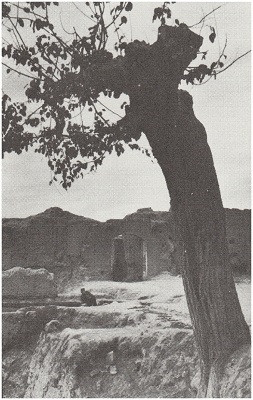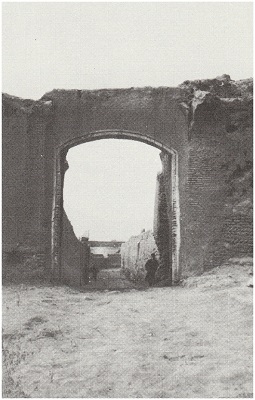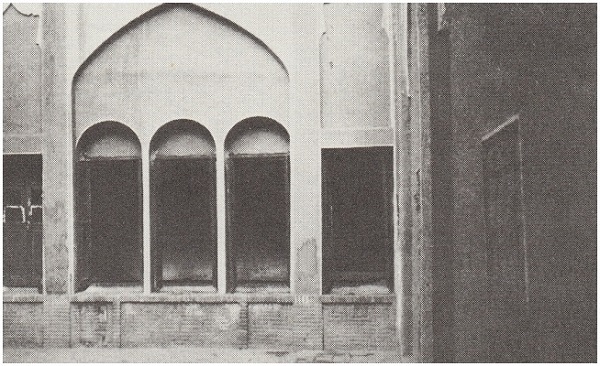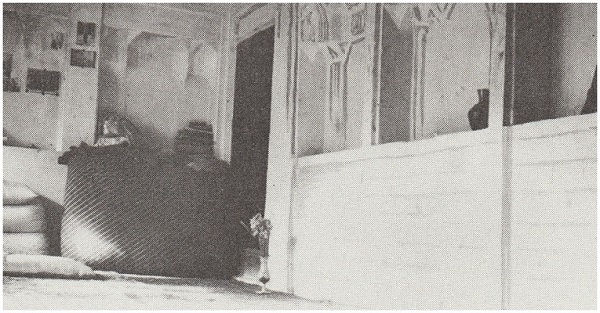CHAPTER XI
THE BÁB'S STAY IN KÁSHÁN

ON THE eve of the Báb's arrival at Káshán, Hájí Mírzá Jání, surnamed Parpa, a noted resident of that city, dreamed that he was standing at a late hour in the afternoon at the gate of Attár, one of the gates of the city, when his eyes suddenly beheld the Báb on horseback wearing, instead of His customary turban, the kuláh 1 usually worn by the merchants of Persia. Before Him, as well as behind Him, marched a number of horsemen into whose custody He seemed to have been delivered. As they approached the gate, the Báb saluted him and said: "Hájí Mírzá Jání, We are to be your Guest for three nights. Prepare yourself to receive Us."
 |
 |
Muhammad Big, who had been riding close to the Báb, thought Him to be an intimate acquaintance of Hájí Mírzá Jání. Turning to him, he said: "I am ready to abide by whatever is the desire of the Siyyid-i-Báb. I would ask you, however, to obtain the approval of my colleague who shares with me the charge of conducting the Siyyid-i-Báb to Tihrán." Hájí Mírzá Jání submitted his request and was met with a flat refusal. "I decline your suggestion," he was told. "I have been most emphatically instructed not to allow this youth to enter any city until his arrival at the capital. I have been particularly commanded to spend the night outside the gate of the city, to break my march at the hour of sunset, and to resume it the next day at the hour of dawn. I cannot depart from the orders that have been given to me." This gave rise to a heated altercation which was eventually settled in favour of Muhammad Big, who succeeded in inducing his opponent to deliver the Báb into the custody of Hájí Mírzá Jání with the express understanding that on the third morning he should safely deliver back his Guest into their hands. Hájí Mírzá Jání, who had intended to invite to his home the entire escort of the Báb, was advised by Him to abandon this intention. "No one but you," He urged, "should accompany Me to your home." Hájí Mírzá Jání requested to be allowed to defray the expense of the horsemen's three days' stay in Káshán. "It is unnecessary," observed the Báb; "but for My will, nothing whatever could have induced them to deliver Me into your hands. All things lie prisoned within the grasp of His might. Nothing is impossible to Him. He removes every difficulty and surmounts every obstacle." The horsemen were lodged in a caravanserai in the immediate neighbourhood of the gate of the city. Muhammad Big, following the instructions of the Báb, accompanied Him until they drew near the house of Hájí Mírzá Jání. Having ascertained the actual situation of the house, he returned and joined his companions.



In the concluding passages of the Tablet which He was addressing to Hájí Mírzá Jání, He prayed in his behalf, supplicated the Almighty to illumine his heart with the light of Divine knowledge, and to unloose his tongue for the service and proclamation of His Cause. Unschooled and unlettered though he was, Hájí Mírzá Jání was able, by virtue of this prayer, to impress with his speech even the most accomplished divine of Káshán. He became endowed with such power that he was able to silence every idle pretender who dared to challenge the precepts of his Faith. Even the haughty and imperious Mullá Ja'far-i-Naráqí was unable, despite his consummate eloquence, to resist the force of his argument, and was compelled to acknowledge outwardly the merits of the Cause of his adversary, though at heart he refused to believe in its truth.